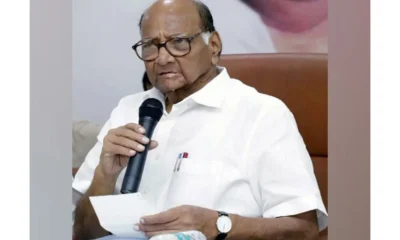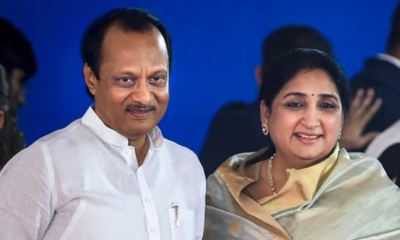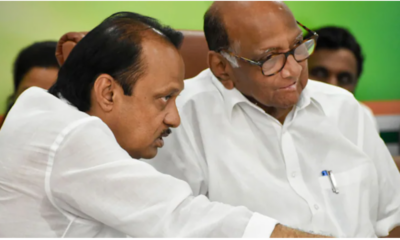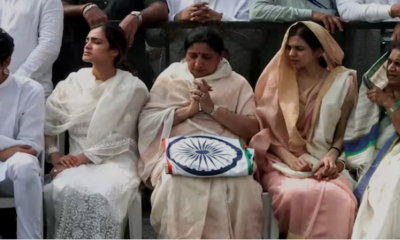[vc_row][vc_column][vc_column_text]
Barely three weeks before the 2019 Lok Sabha polls get under way, the Opposition camp continues to be in disarray with the main opposition party Congress still to enter into alliances with others in different states and some, as in Uttar Pradesh, having already fallen through.
Notification for the first phase of voting in the April-May Lok Sabha elections was issued yesterday, allowing candidates to start filing nominations.
There was some movement today (Wednesday, March 20) when, after days of hectic deliberations, the Congress and National Conference (NC) Wednesday sealed an alliance in Jammu and Kashmir for the forthcoming Lok Sabha Polls. Even here, it is not a clear cut seat sharing arrangement and the two parties will have ‘friendly contest’ for some seats.
J&K will vote in five phases on April 11, 18, 23, 29 and May 6, 2019.
Announcing the alliance, NC chief Farooq Abdullah said Congress will contest on Jammu and Udhampur and that he will be contesting from Srinagar. However, there will be a “friendly contest” between the two parties on the Anantnag and Baramulla seats, senior Congress leader Ghulam Nabi Azad and NC patron Abdullah jointly told the media.
The NC chief also said the two parties are discussing on the Ladakh seat.
Azad said there will be no cut-throat competition between the Congress and NC on Anantnag and Baramulla seats. “Friendly contest means that there will be no cut-throat contest between us on these two seats (Anantnag and Baramulla). If either Congress or NC wins, it’s a win-win situation for both of us,” he was quoted as saying by ANI.
He didn’t say what if both end up losing the seats. The two parties had contested the 2014 Lok Sabha elections together as well, and ended up with no seat. The BJP had won both the seats in the Jammu region and one in Ladakh, while the PDP had won all the three constituencies in Kashmir.
Efforts were also on to firm up alliances in Delhi, Bihar and Maharashtra. Suspense continued in Delhi over whether the Congress will join hands with chief minister Arvind Kejriwal’s Aam Aadmi Party (AAP). The talks had made no headway and were practically dropped till Nationalist Congress Party (NCP) chief Sharad Pawar stepped in as a dealmaker.
In Bihar, The Hindustan Times reported that according to Congress leaders familiar with the developments, an alliance between the Congress, the Rashtriya Janata Dal (RJD) and several smaller constituents of the Mahagathbandhan (grand alliance) will be finalised in the next two days.
In Bihar, the Congress wants 11 of the total 40 seats in the state. Its ally, the RJD is expected to get 20 seats and the remaining seats will go to smaller allies.
Among them are the Rashtriya Lok Samta Party (RLSP), led by former Union minister Upendra Kushwaha; Jitan Ram Manjhi’s Hindustani Awam Morcha (Secular); and the Sharad Yadav-led Loktantrik Janata Dal.
In Maharashtra, the Congress and Pawar’s NCP have almost finalised the alliance. While the Congress is expected to get 26 seats, the remaining 22 will go to the NCP. The two parties fought separately in 2014.
The two parties have also identified the constituencies they will fight. The only hurdle is bringing smaller allies on board. A senior Congress leader said these problems, too, will be resolved soon.
But alliance talks between the Congress and the Communist Party of India (Marxist) in West Bengal appeared to have failed after the former announced on Monday its candidates from Raiganj and Murshidabad constituencies, the bone of contention between the two sides. Both seats are currently held by the CPI(M).
The Left announced candidates for 38 out of the 42 Lok Sabha constituencies in Bengal, leaving out four seats the Congress won in 2014. Left Front chairperson Biman Bose said if the Congress did not withdraw its candidates in the two seats at the centre of the controversy, his bloc will go ahead and name candidates for them too.
The Congress has been kept out of the coalition of the Samajwadi Party (SP), Bahujan Samaj Party (BSP) and the RLD in politically crucial Uttar Pradesh, which sends 80 members to the Lok Sabha.[/vc_column_text][/vc_column][/vc_row]


 Latest world news24 hours ago
Latest world news24 hours ago
 India News20 hours ago
India News20 hours ago
 India News15 hours ago
India News15 hours ago
 India News26 mins ago
India News26 mins ago
 India News36 mins ago
India News36 mins ago
 Latest world news9 mins ago
Latest world news9 mins ago













